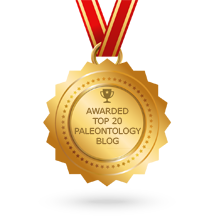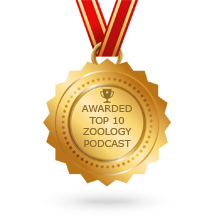The Mesozoic era, meaning “middle life”, is a division of earth’s history spanning from around 252 to 66 million years ago. It is subdivided into the Triassic, Jurassic and Cretaceous periods. The beginning of the Mesozoic is characterised by a long phase of recovery following the end Permian mass extinction. The end of the Mesozoic is marked by the Cretaceous/Paleogene extinction event which wiped out the dinosaurs among other groups.

Published on October 1st, 2013 | by David Marshall
In this episode we talk to Jørn Hurum, Associate Professor of Vertebrate Paleontology at the Natural History Museum Oslo, Norway. Jørn has varied research interests including dinosaurs and mammals (being one of the team of researchers who described [&hellip... Read More →

Published on April 1st, 2013 | by David Marshall
Ichnology is the study of trace fossils (also termed ichnofossils). Opposed to body fossils, the physical remains of an organism, trace fossils are the fossilised interactions between an organism and the substrate/sediment and include such things [&hellip... Read More →

Published on March 1st, 2013 | by David Marshall
Every palaeontologist needs to put their feet up once in a while, and what better place to do so than at the Best Western Denver Southwest? This hotel is located just a stone’s-throw away from Dinosaur [&hellip... Read More →

Published on December 15th, 2012 | by David Marshall
The Mesozoic Era saw the spectacular rise and fall of many groups, particularly in terrestrial vertebrates. These include birds, squamates, crocodiles, and pterosaurs, who wove a complex tapestry of evolution through the 185 million years of [&hellip... Read More →

















